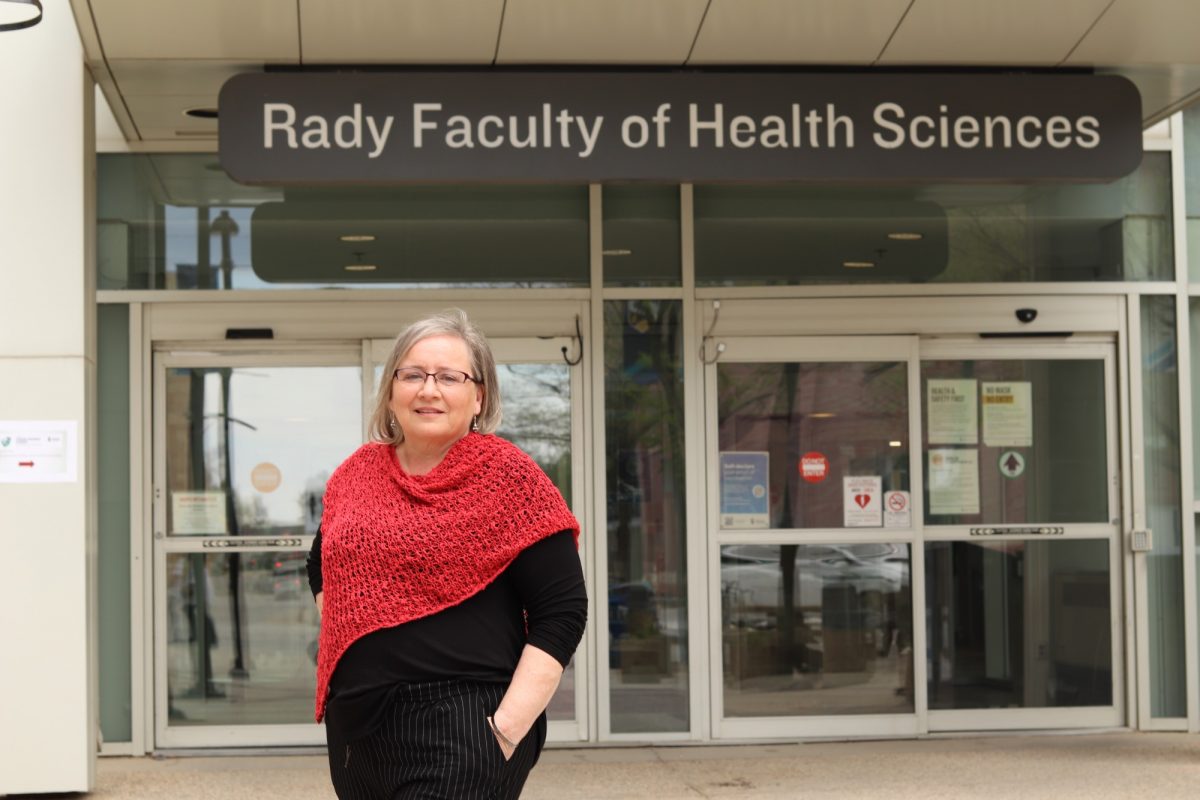
Interconnected Care
Gayle Halas [Dip.D.Hyg./87, PhD/16] has taken a long journey as an educator and researcher since starting her career as a clinical dental hygienist.
A key lesson of that journey, she says, is that health is multifaceted, with needs based on physiological, emotional and social factors.
Halas, who was raised in Winnipeg, is an assistant professor in the School of Dental Hygiene at the Dr. Gerald Niznick College of Dentistry, where her academic career started 22 years ago.
Her passion for primary health-care research took hold when, from 2006 to 2016, she was mentored by Dr. Alan Katz [M.Sc./95], working as a research associate in family medicine at the Max Rady College of Medicine. Spurred on by that experience, she completed her PhD in 2016 through UM’s individualized interdisciplinary program.
“I wanted to look not just at health or oral health, but to consider the whole person and the social world immediately outside of the person,” she says. “I thought listening to patients’ experiences and feedback could be pivotal for optimizing the way forward.”
Halas holds adjunct appointments in family medicine and community health sciences. In 2019, she was appointed the inaugural Rady Chair in Interprofessional Collaborative Practice.
Her current research focuses on how different health-care professionals collaborate in providing primary health care. Collaboration, she says, is not the easiest thing to study.
“Collaboration could be a consultation between two health-care providers, or a provider referring a patient to another professional, or people with a range of roles supporting a patient when they leave the hospital. It’s complex.”
In one of her studies, Halas is looking at individuals experiencing homelessness who are hospitalized at St. Boniface Hospital with heart conditions. When they are discharged, where do they go? How can they settle back into the community in a vulnerable state?
“This is something physicians and social workers have struggled with. So how about something in between? Not a medical unit, but something that helps facilitate the process,” says Halas.
Her team is working with community advisors, including the Salvation Army, to create a hub for accessing peer support and community assistance after being discharged.
Halas is also studying how COVID-19 has changed the way patients access care. She is examining how health-care providers and patients have experienced virtual care, in order to get a sense of how virtual visits might be sustained.
“I was interested in learning about the shifting roles of health professionals during the pandemic. However, that was quite a challenge,” she says.
“Virtual visits are one piece of the health-care system’s capacity. To better examine workforce capacity, we need a data infrastructure with information on the health workforce regarding scope of work, training, and how health teams work together. This has been a long-standing issue in Canada, even predating the pandemic.”
In all her research, Halas says she wants to focus on the individual patient.
“All the things we do as health-care providers and researchers affect individuals. How does that translate to meaningful and integrated patient care?”






